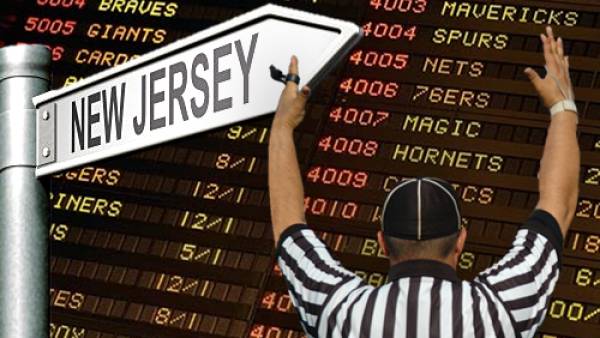Officials Again Ponder Whether Sports Betting Should be Legalized in New Jersey

(Associated Press) - A U.S. appeals court wondered aloud if New Jersey would become "the Wild East," if not "the Wild West," if it allows sports betting at racetracks and casinos but leaves the industry to police itself.
New Jersey officials have tried in recent years to legalize sports betting despite a 1992 federal law that forbids most states from authorizing or overseeing it.
U.S. appellate judges have twice rejected their efforts in 2-1 decisions, but reconsidered Wednesday in arguments before the full Third Circuit Court in Philadelphia.
Each side hired a former U.S. solicitor general for the high-stakes fight: Theodore Olson argued for Gov. Chris Christie's administration and Paul Clement for the NCAA, the NFL and other pro sports leagues who say the expansion of sports betting threatens the integrity of their games.
Christie and other supporters complain the state is losing millions to illegal sports betting that could help struggling Atlantic City and the ailing horse racing industry. The revised 2014 law would allow sports wagering only in Atlantic City casinos and certain racetracks.
Paul Fishman, the U.S. Attorney for New Jersey, said the law effectively authorizes gambling at those sites by prohibiting it elsewhere. He called that a violation of the Professional and Amateur Sports Protection Act of 1992, which passed after Congress carved out an exception for Nevada and a few other places that already allowed some types of sports wagering.
Olson argued that repealing part of the state's ban is not the same as authorizing sports betting.
"New Jersey (in 2012) approached the problem saying gambling is taking place everywhere in New Jersey. We would like to regulate it. This court said it cannot be done under PAPSA," Olson said. "What New Jersey is saying (now) is we're not going to have anything to do with it. We're not going to control it."
Ronald Riccio, representing the New Jersey Thoroughbred Horsemen's Association, tried to assure judges the industry could police itself without the state becoming "the Wild West of sports betting."
Chief Judge Thomas Ambro joked that it might instead become "the Wild East."
But Riccio noted that the real estate, oil and, yes, even legal professions, regulate themselves.
Judge Cheryl Ann Krause asked why the plan didn't amount to an expansion of the casino and racing licenses the state already issues, given that "the only premises permitted to conduct sports gambling are those that are licensed and regulated."
And at least one judge wondered why other states wouldn't simply follow suit and revoke their sports betting bans.
The professional leagues and NCAA have said that expanding legal sports gambling could lead to more game-fixing. But sports betting supporters have called their stance hypocritical, saying they condone and profit from fantasy play in which participants assemble rosters of players from different teams and compete against each other.
The judges are expected to take several months before issuing a decision. The state, if it loses, could appeal to the U.S. Supreme Court.
















